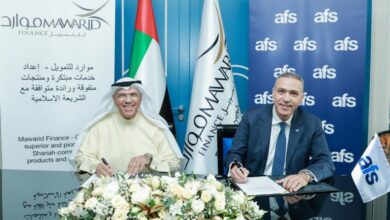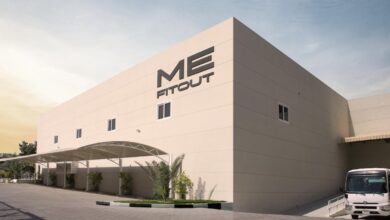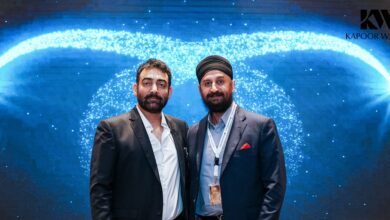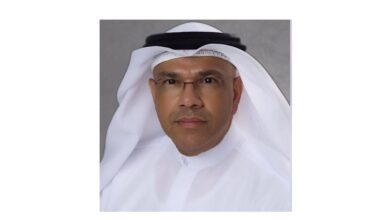- DIFC convenes more than 1000 global industry stalwarts, innovators, and change-makers to accelerate efforts to achieve the longer-term goals of the Paris Agreement and UN’s 2030 Agenda for Sustainable Development.
- Opening day of inaugural Future Sustainability Forum explores ways for the financial sector to address climate financing requirements in emerging markets.
In the presence of more than 1000 industry leaders and changemakers from across 30 countries, Dubai International Financial Centre (DIFC), the leading global financial hub in the Middle East, Africa and South Asia (MEASA) region, opened the first ever Future Sustainability Forum (“The Forum”) today at the Ritz-Carlton, DIFC.
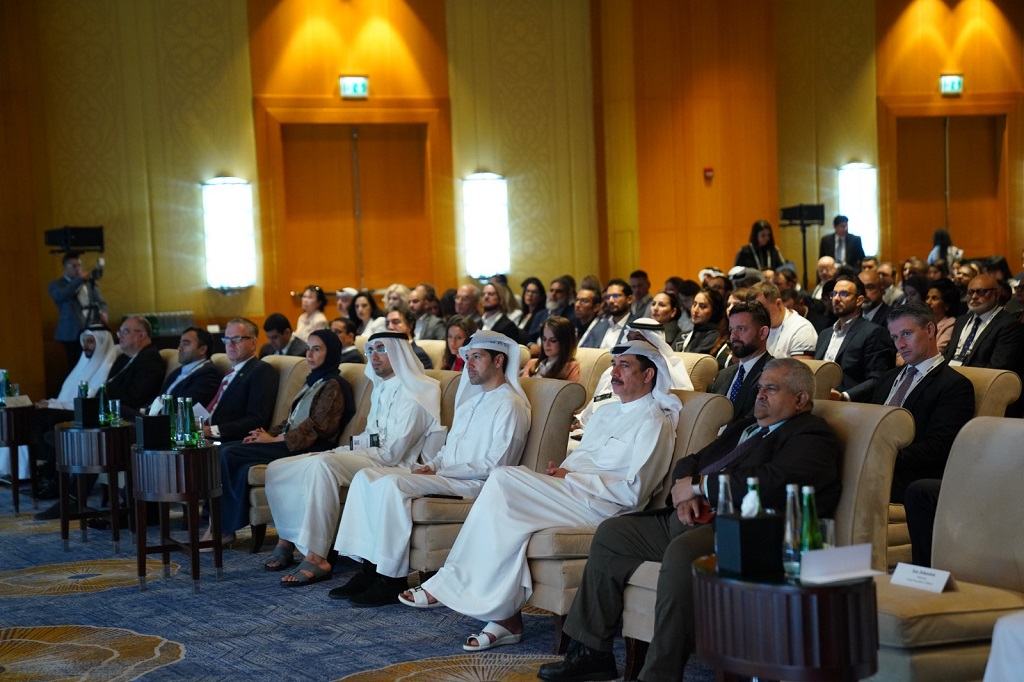
Held in the run-up to COP28, the Forum spotlights DIFC’s vision of fostering global solutions to address climate financing requirements in emerging markets. The two-day Forum has convened leading industry stalwarts, decision-makers, and innovators from around the world to explore ways for the financial sector to lead action on climate change.
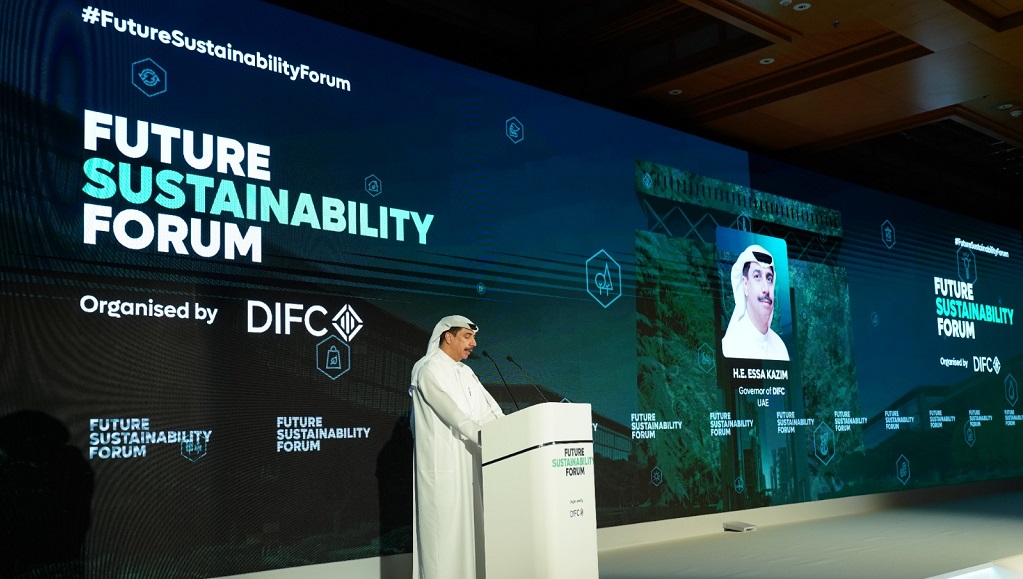
Led by 50+ speakers, discussions on the opening day of The Forum centred on actionable strategies for promoting a just transition to a sustainable economy and aligning efforts with the long-term goals of the Paris Agreement and the United Nations Sustainable Development Goals for 2030.
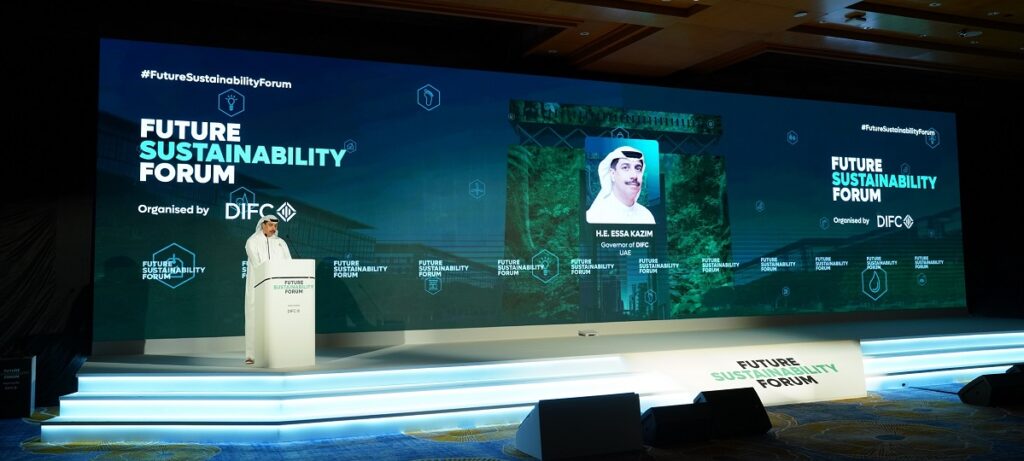
Delivering the opening remarks, His Excellency Essa Kazim, Governor, DIFC, said: “The UAE and Dubai government have spearheaded a range of comprehensive sustainability programmes in the pursuit of a net zero future. By connecting investors and funds from Europe, Asia, and Africa with growth-markets, Dubai and DIFC have taken leading roles in driving climate finance mobilisation in the region. As a pioneer in shaping sustainable finance in the region, DIFC’s hosting of the Future Sustainability Forum marks a crucial step in the Centre’s journey to drive tangible progress on climate action in alignment with the COP28 agenda and achieve the long-term goals of the Paris Agreement.”
The Forum’s agenda supports COP28’s 4-pillar plan on fast-tracking the transition, fixing climate finance, focusing on adaptation to protect lives and livelihoods, and making COP28 fully inclusive. Globally, an estimated USD 3.3 – 4.5 tn is required annually to achieve the 2030 Agenda for Sustainable Development. To facilitate this, DIFC supports growth of the sustainable debt market within Nasdaq Dubai. As of September 2023, Nasdaq Dubai is the largest ESG sukuk market in the world, accounting for approximately 64 per cent of the world’s dollar-denominated sustainable sukuk (USD 16.4bn out of USD 25.8bn) and 46 per cent of the world’s all-currencies sustainable sukuk (USD 17.5bn out of 38.3bn).
The signing of 2 MoU agreements at the Future Sustainability Forum is further testament to the city’s role in increasing the availability and accessibility of climate finance and points to The Forum’s efforts to channel investment flows between the Global North and Global South.
Arif Amiri, Chief Executive Officer, DIFC Authority, said: “At DIFC,we recognise that finance is a powerful tool for positive change. By unlocking opportunities for the sector to connect, here at the Future Sustainability Forum, our goal is to pioneer change and foster collaboration as we drive the transformational shift needed to accelerate a sustainable future for all. This is in line with the agenda of the upcoming COP28, which places a strong emphasis on financial commitments to support developing nations in their transition to green economies. By hosting The Forum, DIFC is further advancing COP28 priorities and reinforcing its leadership role in catalysing sustainable finance and innovation in the region.”
The opening day of The Forum offered participants the opportunity to attend panel discussions, closed door roundtables, and fireside chats and engage with key stakeholders including industry titans, investors, tech disruptors, and policymakers. Among the key topics discussed on Day 1 included ‘The Path to making Dubai a Global Sustainable Finance Hub’, ‘Integrating ESG into Decision-Making’, ‘Mobilising Finance for Climate Action: Looking Ahead to COP28’, and ‘Harnessing the Power of Private Finance for Sustainability’.
Day 2 of The Forum promises more insightful discussions on relevant topics including ‘Nature-based solutions crucial role in achieving net-zero emissions’, ‘Innovations for Transparency: Disruptive Technology in the Carbon Offsetting Space’, ‘Harnessing the Power of Renewables: A Bright Future Amidst Complexities’, and ‘Climate Risk Integration into Financial Planning’.
Speakers at The Forum include H.E. Mariam Bint Mohammed Saeed Hareb Almheiri, UAE Minister of Climate Change & Environment; Hon. Quincia Gumbs Marie, Minister of Sustainability, Innovation & the Environment, Government of Anguilla; Matt Brown, Chief – Sustainability, Expo City Dubai; Sherif Tawfik, Chief Sustainability Commercial Officer – Central Southeast Europe, Middle East & Africa, Microsoft; Dr. Ayesha Alnuaimi, Director of DEWA’s Solar Innovation Centre and Amal Larhlid, Partner Sustainability at PwC; Florence Bulte, Chief Sustainability Officer of Chalhoub Group; Rajesh Garg, Group CFO and Chief Sustainability Officer of Landmark Group; Nader Albastaki, Managing Director of Dubai Future District Fund; Suhail Bin Tarraf, Group Chief Operating Officer of First Abu Dhabi Bank; Vijas Bains, Group Chief Sustainability Officer, Emirates NBD; Simon Thompson, Chief Executive Officer, The Chartered Banker Institute; Shargiil Bashir, Chief Sustainability Officer, First Abu Dhabi Bank; Nameer Khan, Founder of FILS and Chairman of the MENA Fintech Association; and Omar Shaikh, Managing Director, Global Ethical Finance Initiative.
DIFC’s hosting of the inaugural Future Sustainability Forum holds great significance in the lead-up to COP28 and is aligned with the Centre’s chairmanship of the Dubai Sustainable Finance Working Group (DSFWG), established in 2019. The Forum also harmonises with DIFC’s 2030 Strategy, aligning with Dubai’s prominence as a global leader in Green and Sustainable Bonds and Sukuk.


